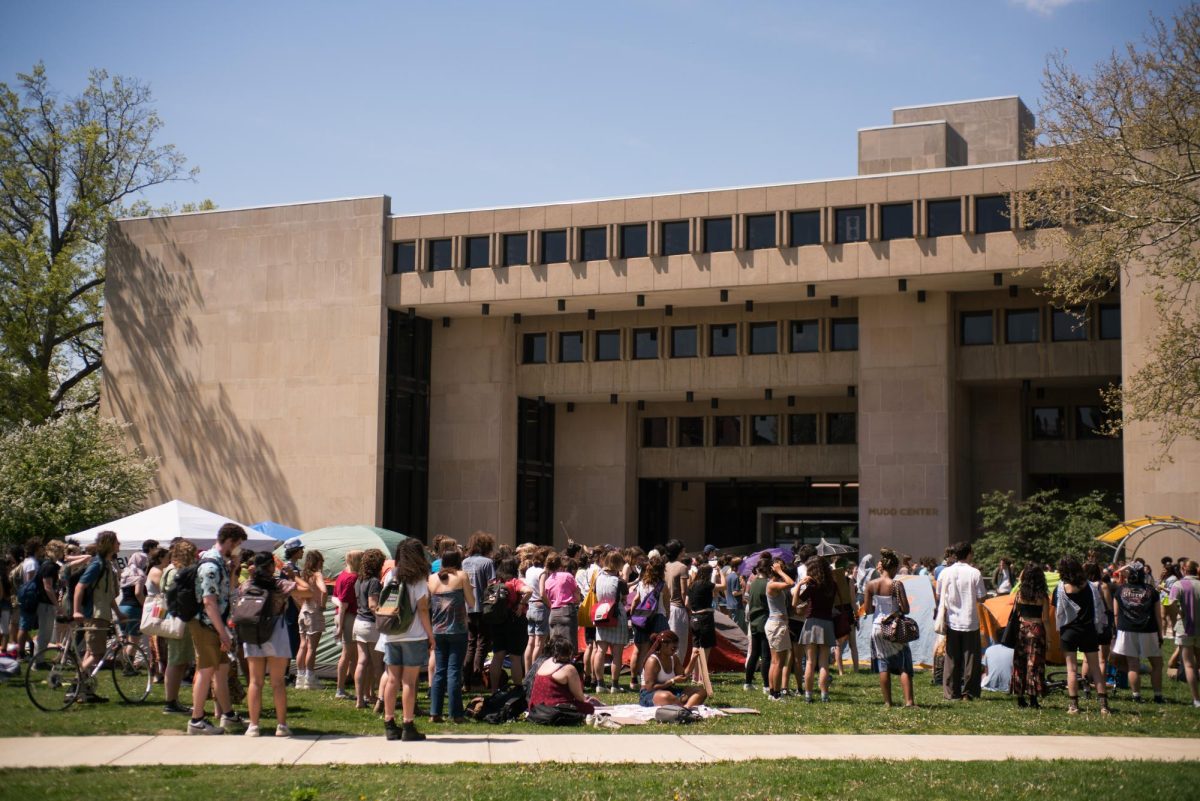The day that Oberlin Early Decision II results came, I overslept.
While it was my second choice school, I knew in my heart that it was the right choice for me. So my logic was that, by purposefully oversleeping through such a big decision that would determine the “after” section of my life, I wouldn’t be too disappointed if I saw other people casually posting about it on social media. I fumbled with my password, entering two different versions of it, but when I finally entered the correct version, red and yellow lit up my computer screen. There was the typical college celebration: a celebratory cake, new sweatshirts, and stickers sent in the mail, but it was especially meaningful. Like so many from the class of 2025 or 2026, my senior year of high school was immensely challenging academically, socially, and mentally, and I was excited to leave it behind and start anew.
Yet, even with my excitement for Oberlin, I also had a distaste for going to college in Ohio. From the perspective of a practically lifelong New Jerseyan and East Coast resident, Ohio was a cornfield, a liminal space, and surely nothing but an escape from everything I was previously familiar and comfortable with. I guess it’s also part of a greater internet trend of seeing Ohio as the most destitute and isolated state, even out of the Midwest, but I found the memes about Ohio’s mediocrity funny. I eagerly told everyone about how difficult it would be for me to “brave it out.”
There have been many pieces written across Oberlin’s publications talking about the dangers of this narrative. By joking that I was “going to school in a cornfield,” Oberlin, not only the state of Ohio, became nothing more than a cornfield to me. I came into Oberlin with the expectation of it being nothing but a school in the middle of nowhere, and that’s how it treated me. It was easier to complain about the bad dining hall food, the 40-minute drive to Cleveland, and the flatness of campus than to give it a genuine chance. My doubts about Oberlin began to translate onto myself as a person. It felt like I was always one second behind in class and conversation; the illusion to people back home that I was doing well felt like it was slowly slipping away. Coupled with an Omicron outbreak that sent classes online and some personal issues, I finished the semester feeling subpar. I began questioning if Oberlin truly was the right decision. I considered logging onto CommonApp again and looking for other schools that were perhaps in a sunnier location, had a bigger campus, and were closer to home. Oberlin had assured me that I could be one person who could change the world, but maybe they were wrong.
I’m not sure what exactly prevented me from starting another application. Nevertheless, I convinced myself to give Oberlin one more chance. My mindset didn’t change overnight, and I still had doubts about what I wanted to make out of my time here. But I realized that Oberlin wasn’t the solution to my problems. By framing it as such in the first place, it made finding the faults that much easier. This time, when I joined a new class or extracurricular, it was more about taking it day by day, not trying to make some grandiose expectation to live up to by the end of the semester.
By now, I’ve found some amount of purpose and joy in what I’ve been doing. I’ve learned to say no and quit, which seems like a major action at a school where almost everyone is running from place to place following a packed Google Calendar schedule. There’s often a narrative that comes with college, specifically Oberlin, that it is the place where we will find the answers. But right now, before the Thanksgiving and finals rush, it feels much harder to find a reason for continuing our routines or lifestyles at Oberlin. In truth, these questions will take time to answer, maybe even long after we all graduate. It’s easy to make fun of Oberlin and even the greater state of Ohio for its mistakes, but there’s also a chance to appreciate it for what it does have. It’s okay if your first, second, or even third semester isn’t social-media worthy.
This article is not in full defense of Oberlin. I agree with many criticisms of the College that have all been widely documented, especially in the last few years. And this isn’t to say my life hasn’t magically gotten better or easier since rethinking Oberlin. But it’s a reminder to myself and to others that Oberlin is what you make of it. It’s either a place of opportunity or nothing but a cornfield in the Midwest. Maybe we can’t change the world in four years, but we can start with ourselves.










